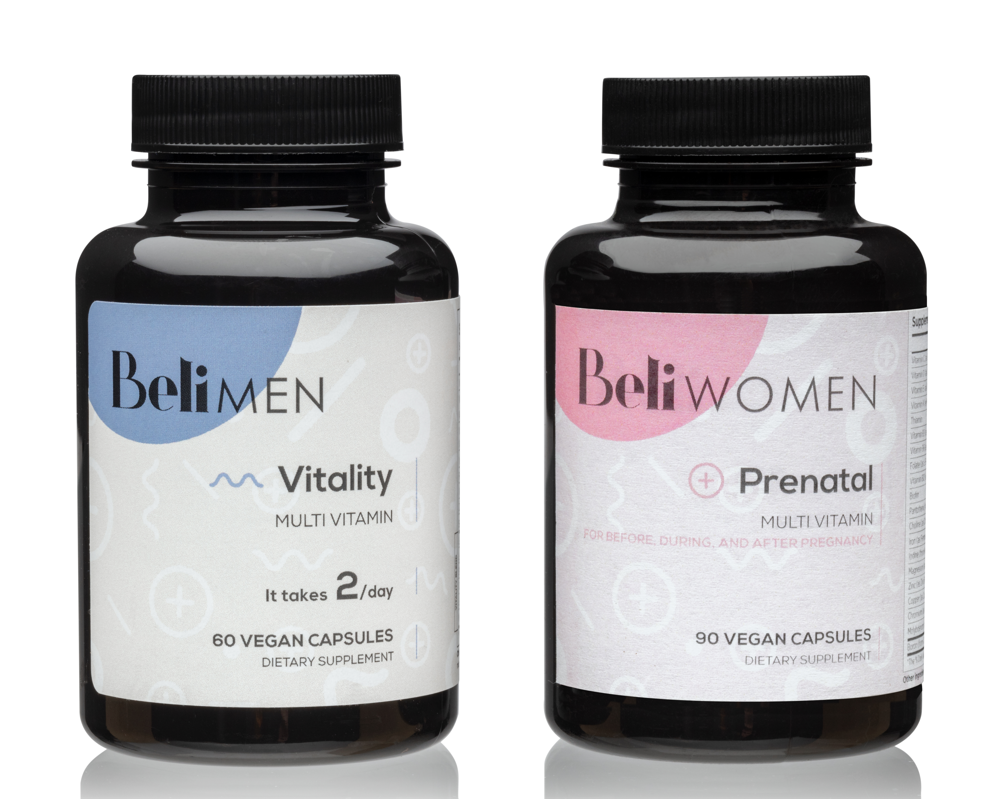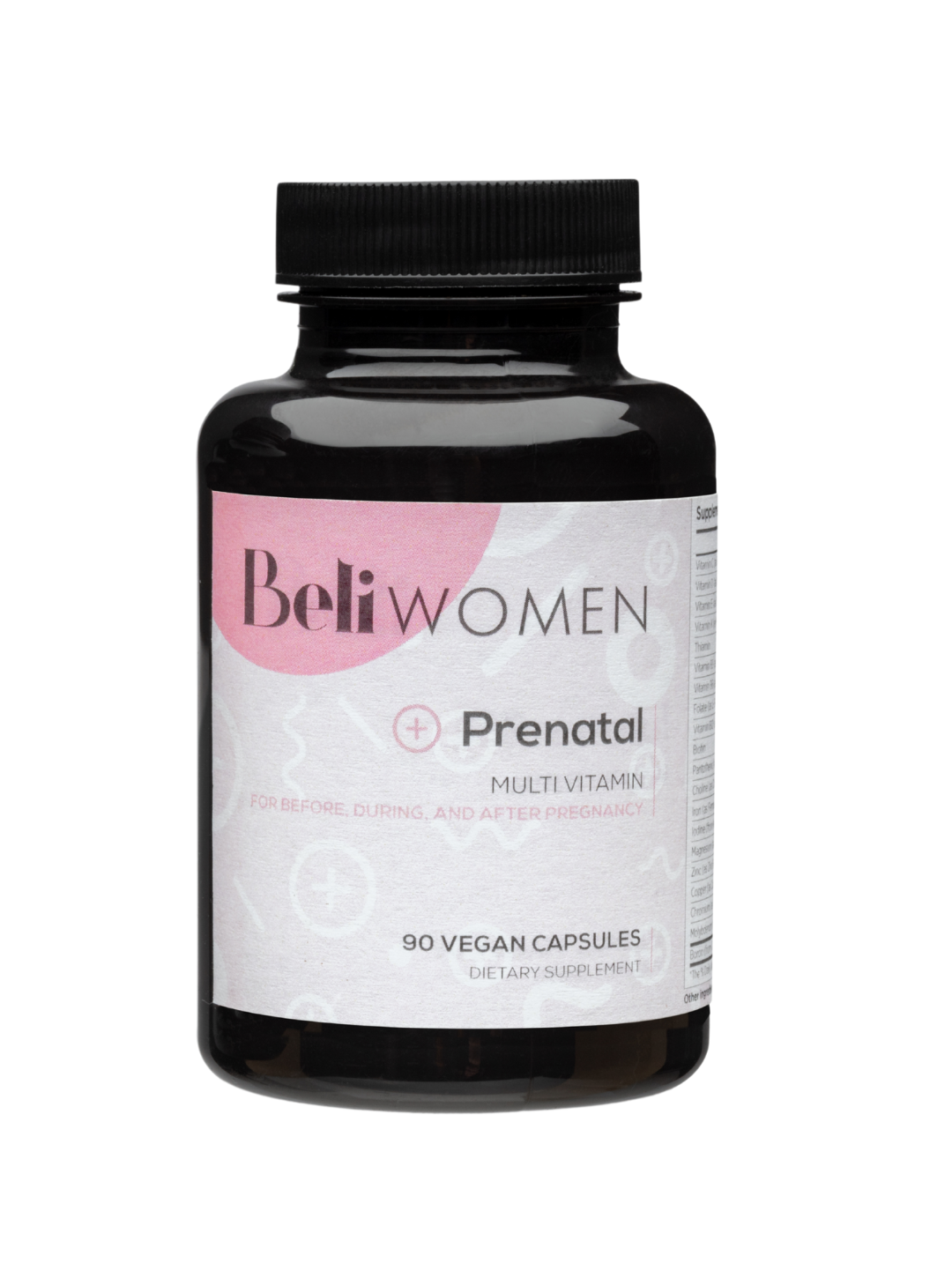Deciding to become a parent is the beginning of a thrilling/terrifying experience, and it’s normal to have a zillion questions along the way. For those who are new to the pregnancy game, you may be wondering what exactly you can or should be doing so those two pink lines make their exciting debut. We’ve got you covered! We checked with Dr. Steve Rad about the top six TTC/pregnancy questions for first-time parents-to-be.
1. Do we need to track my cycle? And … how do you do that?
Figuring out when you’re ovulating can help boost your odds of becoming pregnant because you can time when to get busy, so tracking your cycle isn’t a bad idea. If it sounds like a lot of work, feel free to skip it!
If you decide you want every advantage for becoming pregnant, including this one, you have a few options. You can track cervical mucus, use the calendar method, or go the tech-savvy route with an ovulation predictor kit.
2. When should I start taking prenatals?
We love this question! Part of the mission here at Beli is educating people on the importance of preconception care, and prenatal vitamins play a key role. If a baby is in the cards, starting prenatal vitamins early – three to six months before you hope to conceive – is all about optimizing your health with nutrients shown to support fertility for a better chance of a healthy conception and pregnancy. Folate, for example, supports egg quality and reduces the risk of birth defects. Choline reduces miscarriage risk by protecting against neural tube defects. Vitamin D supports embryo implantation. You’ll find all of these nutrients – and more! – in a high-quality prenatal vitamin like Beli for Women.
Starting prenatals early has another benefit as well. The majority of women don’t know they’re pregnant until they miss their first period, typically between four and six weeks of pregnancy. This is the same time period that brain and spine defects often occur. By starting prenatal vitamins three to six months before you hope to become pregnant, you can be certain that your baby will have all of the nutrients necessary for proper neural tube development.
One more time, for the folks in back – as soon as you decide you’re trying for a baby, it’s time to start prenatals.
3. Are men’s prenatals a thing?
Yes, yes, one thousand times yes. The preconception health of both hopeful parents-to-be affects everything from conception to the health of the next generation. Prenatal vitamins formulated for men are designed to support male fertility, and that means promoting sperm health. As it happens, a nutrient shortage is the most common reason behind sperm deficiencies – a fact that really clarifies the importance of a men’s prenatal vitamin!
In Beli Vitality for Men, we use 14 handpicked ingredients based on the most current research on men’s fertility nutrition. The right minerals, vitamins, and antioxidants can support sperm health across all parameters, including motility, morphology, and quantity.
Bonus – taking a prenatal vitamin is also an easy, tangible thing your partner can do to feel involved in the process of becoming a father. It’s a nice little side benefit.
4. Do we need to make any lifestyle changes to increase our chances of getting pregnant?
Definitely! Remember, the health of both parents prior to conception has direct implications on everything to come, beginning with a healthy conception. And while prenatal vitamins for the both of you are important, so is committing to healthy lifestyle habits. That means a nutritious, varied diet. It means adequate hydration. It means nixing bad habits, like too much alcohol and recreational drugs (and yeah, probably CBD too). It means consistent exercise and stress management and plenty of sleep. The fact is, our fertility health is very closely tied to our health as a whole. So anything you do to improve your general health will benefit your fertility too.
5. How quickly can we realistically expect to get pregnant?
Literally no one can answer this question definitively. However, there are some generally accepted statistics that may be helpful as a guideline. Among pregnant women under age 37 who have no known fertility issues, roughly 45% of them will have conceived within three months of trying. Eighty-five percent will try for a year, and 93% will try for a year and a half. But remember that every couple is unique, and guidelines are really just that.
6. Should we see a doctor if we’re not pregnant within a certain timeframe?
The general recommendation is to try for at least a year before seeking an expert’s take. But for your own peace of mind, give yourself the freedom to speak to your doctor well before that if you think it will help! At the very least, you’ll get a little reassurance that time is all you need. At best, your doctor will test your partner’s sperm and your hormone levels to rule out any potential issues.
More questions? Check out our FAQ page or send us a message on social!




